
We kindly inform you that, as long as the subject affiliation of our 300.000+ articles is in progress, you might get unsufficient or no results on your third level or second level search. In this case, please broaden your search criteria.

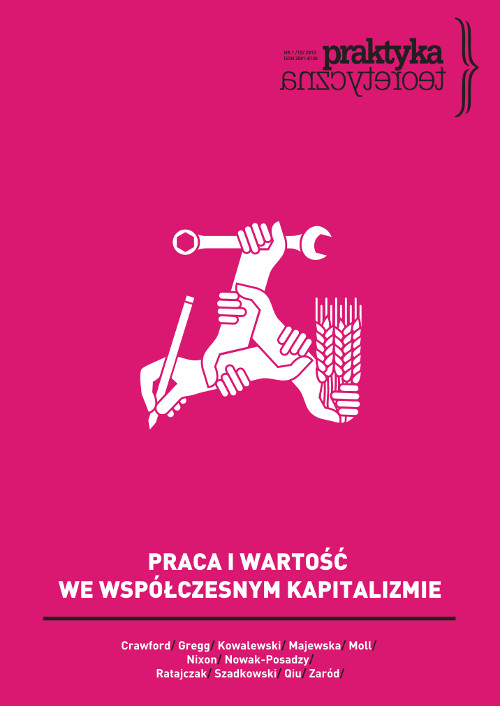
This paper questions the binary of material and immaterial labour in the information era. Instead, we propose a “circuits of labour” model, a holistic framework that helps connect various concepts and traditions in the study of labour and ICT (information and communication technology). Inspired by du Gay et al’s “circuit of culture”, we argue conventional frameworks need to be synthesized and updated to reflect fundamental changes and persisting issues of labor in our contemporary era, of which the iPhone is emblematic. On the one hand, our model consists of formal circuits, in which hierarchical domination is imposed by capital over the body of labour. On the other hand, it consists of informal circuits where relationships are defined communally between embodied practices and social and communicative capital. The informal and formal circuits of labour are “short-circuited” by survival labour and ‘playbour’, meaning either circuit may absorb productive energy from the other. This article then uses the case of Foxconn, the world’s largest electronic manufacturer that also produces iPhones, to illustrate the usefulness of the “circuits of labour” model. We finally discuss the broader implications and questions for future research.
More...
This article contributes to a political economic theory centred on the concept of “audience labour”. First, the previous use of the concept of audience labour is briefly traced and the process of rethinking the concept as the basis of a political economic theory is begun. Second, a theory of the audience labour process is developed, drawing on previous theories of audience activities of cultural consumption as productive activities of signification and adapting Marx’s theory of the human labour process to the audience labour process. Third, a political economy of audience labour is outlined. As a theory of the basic processes through which communicative capital can control and extract value from audience labour, it describes the exploitation of audience labour and accumulation of communicative capital through distribution relationships of rent and interest. Finally, the continuing centrality of audience labour exploitation in the digital era is discussed.
More...
In consequence of initiative of Raniero Panzieri operaismo emerged in 1960-1961 as a stream of radical theoretical revival of Marxism in the context of widespread domination of objectivism and historicism and equally radical revival of strategy of workers movement in its struggle against its internal dominant reformist tendency. Its foundation was supposed to be a reading of Capital “from the workers point of view”. It soon become apparent that it is a fundamentally divided project, both politically and theoretically. 1963 marks a split within operaismo. Majority that sided with Mario Tronti detached, developing an anti-materialist revision of Marxism that resulted in creation of metaphysics of workers’ autonomy. In 1969-1980 an enormous wave of working class struggles brought to the fore clear conclusions in fundamental disputable issues that divided operaistas.
More...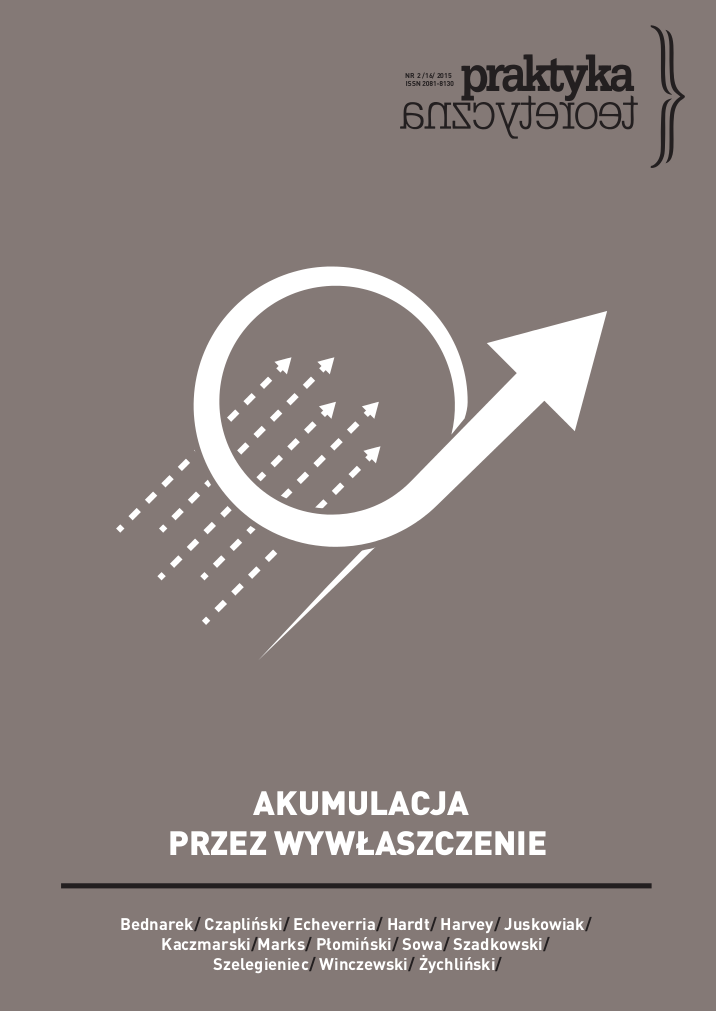

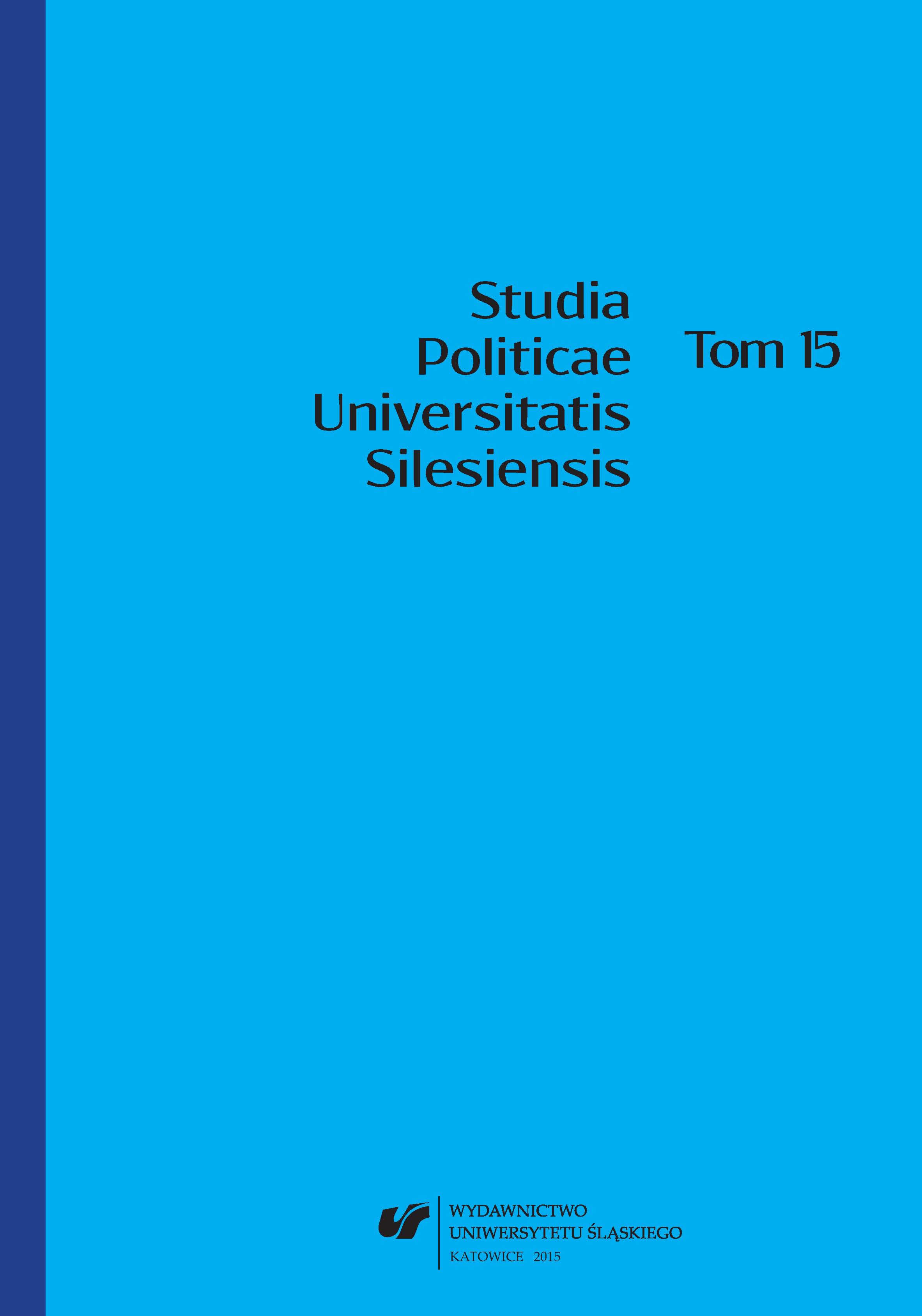
In this article the author try to analyze the process of growing into financial‑industrial groups in Ukraine’s political parties. She seeks to ascertain its causes and consequences. Analyzes the initial time of systemic transformations in Ukraine. Special attention is given to the time presidency of Leonid Kuchma (1994—2005), because he was the chief architect of the oligarchy of the economy and the political system of Ukraine.
More...
In the time of the second Yugoslav state the concepts of public and private attained entirely new implications, and hence a strict line separating the state and nonstate economic sectors was drawn. The following contribution, based on the available documentary materials, first analyses the main characteristics of how the public services in the economic field operated, and focuses mostly on the communal activities which ensured the basic material living and working conditions in the certain urban environments as activities of special social importance. Furthermore, the contribution also focuses on the systemic possibilities for small industry activities and characteristics of the development of private craft industry.
More...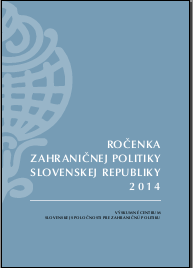
Slovenská energetika čelila v roku 2014 viacerým globálnym a regionálnym výzvam, ktoré budú mať dosah na jej ďalší vývoj minimálne v strednodobom horizonte. V tejto súvislosti boli najdôležitejšími udalosťami sprevádzkovanie reverzných dodávok zemného plynu smerom na Ukrajinu spoločnosťou Eustream a opakované citeľné zníženie dodávok plynu od ruského koncernu Gazprom pre najväčšieho obchodníka s plynom, Slovenský plynárenský priemysel (SPP), a to práve v čase, keď nad ním získala absolútnu kontrolu slovenská vláda. Ďalšou takouto udalosťou bolo dianie okolo Slovenských elektrární (SE ), kde na pozadí plánovaného predaja podielu ich majoritného akcionára – talianskeho Enelu – narastali spory medzi ním a vládou Roberta Fica. Zvyšoval sa aj tlak na výrobcov elektrickej energie z obnoviteľných zdrojov, ktorý koncom roka vyústil až do zastavenia podpory na rok 2015 pre mnohých z nich. Napriek citeľnému poklesu cien silovej elektrickej energie na stredoeurópskych burzách, slovenskí odberatelia tento pokles v cene elektriny pocítili na svojich účtoch oveľa menej ako v iných krajinách EÚ .
More...
Exchange rates stability is an important monetary policy target. Hence monetary authorities aim at avoiding wide diver- gence between the official exchange rate and parallel exchange rates in most developing economies. This paper employs GARCH (1,1) and GJR-GARCH (1,1) models to estimate and compare volatilities of official, interbank, and bureaux de change markets Naira/US$ exchange rates for the January 1995–December 2014 period. The results of the study show that the volatilities of interbank and bureaux de change exchange rates in the previous periods influence current volatility of ex- change rates. The results also show evidence of volatility clustering in the interbank market and bureaux de change Naira/US$ exchange rates. Sum of the ARCH and GARCH coefficients indicates evidence of volatility persistence in the exchange rates returns series. Comparative analysis between the exchange rates volatilities shows that the magnitude of impact of volatil- ity shocks on current volatility as well as volatility clustering are greater in bureaux de change than in other exchange rates in Nigeria. The asymmetric parameter indicates that exchange rates depreciation tends to produce higher volatility in the immediate future than appreciation of the same magnitude in both the interbank and bureaux de change markets in Nigeria.
More...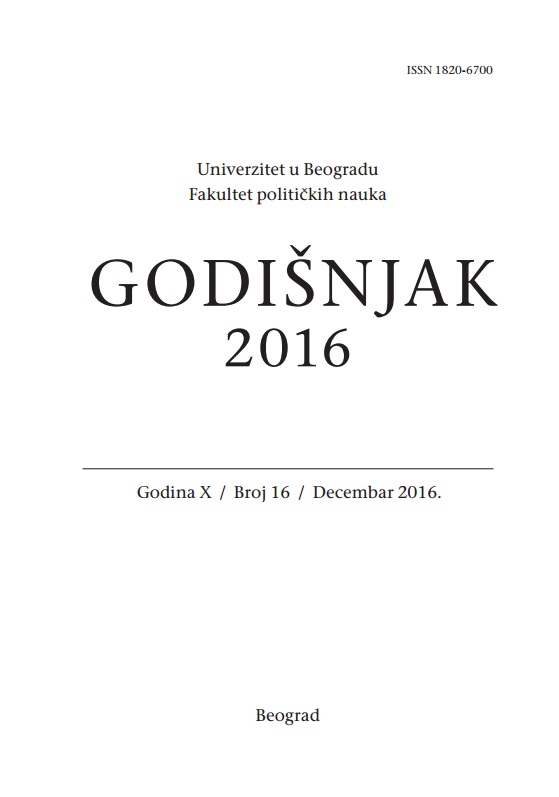
Energy security as a dominant political-security issue to the nation state (Republic of Serbia) and supranational organization (European Union), and also the way of achieving and ensuring it under the rapidly changing conditions – is a central theme of the upcoming analysis. The aim is to show how the European Union, although an energy-dependent subject, by its energy policy affects the energy security of Serbia: primarily by membership in theEnergy Community for South Eastern Europe, as an example of the first, functional integration (2006) as well as by enjoying the rights and fulfilling the obligations arising from the process of the accession negotiations with the Union – which is, therefore, the key thesis that the author represents. in this sense, the necessity of harmonization with the EU energy policy stands out and crystallizes as a common denominator of the given impact and as the biggest challenge for the upcoming period as well. The increasing EU dependence takes alarming proportions – from ½ (2000) to ¾ of total energy needs (2030), as predicted, while Serbia, being aware of its strengths and weaknesses – without excluding any energy option in the future, remains the link between the East and the West.
More...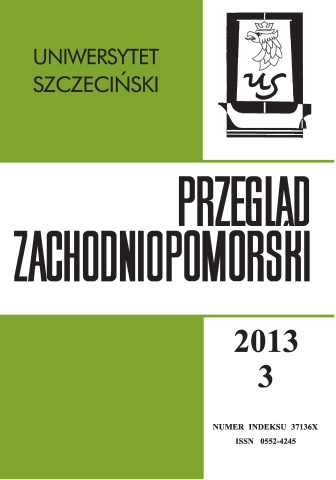
Ordoliberalism is a German neo-liberalism variety and is in a trend of supply-side economics. However ordoliberalism proclaimed by liberals, differs from the classical orthodox by more social character. Allows the state role as a controller verifying compliance with the law by operators. Ordoliberalism is ordered liberalism based on the rule of law, is not a spontaneous liberalism which taking into account the free play of market forces. Because of that anglo-American liberals unwilling to recognize ordoliberalism as one of the trends of modern neoliberalism. The main goal of this article is to draw attention to specific of German economic thought and meaning of liberalism in ordoliberal doctrine.
More...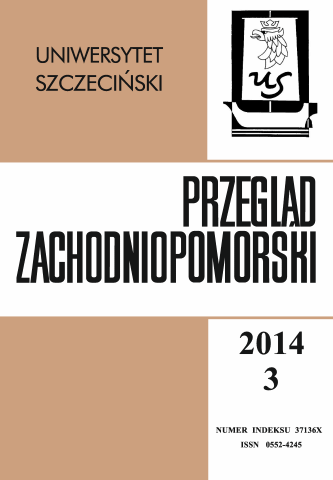
Economics and politics have been always interrelated, any discussion on economic issues cannot be complete without raising political questions. The role of politics and politicians in economic business cycles has been broadly discussed. The paper presents the theoretical premises of the political business cycle and the political budget cycle. The authors reviewed the world literature on new political economics, which takes into account the above-mentioned phenomena.
More...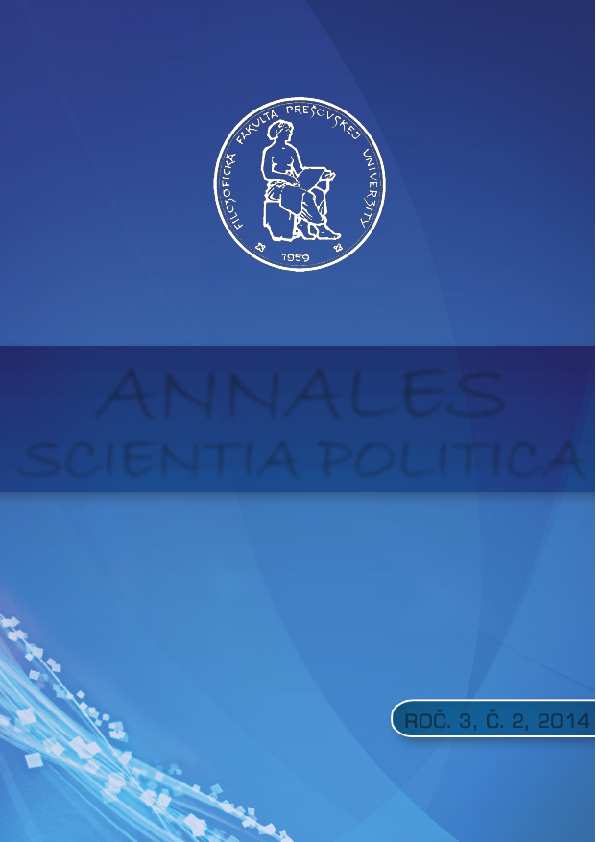
The article focuses on mapping the past and contemporary discourse on corporate social responsibility in its various theoretical and practical levels. It reflects the characteristicfeatures of individual-ethical and institutional-ethical paradigm, which vary widely in their starting points, especially when it comes to the overall view of definition of the mater and the subjects of social responsibility. Within this context, the author briefly compares the stockholders theory with the stakeholders theory.
More...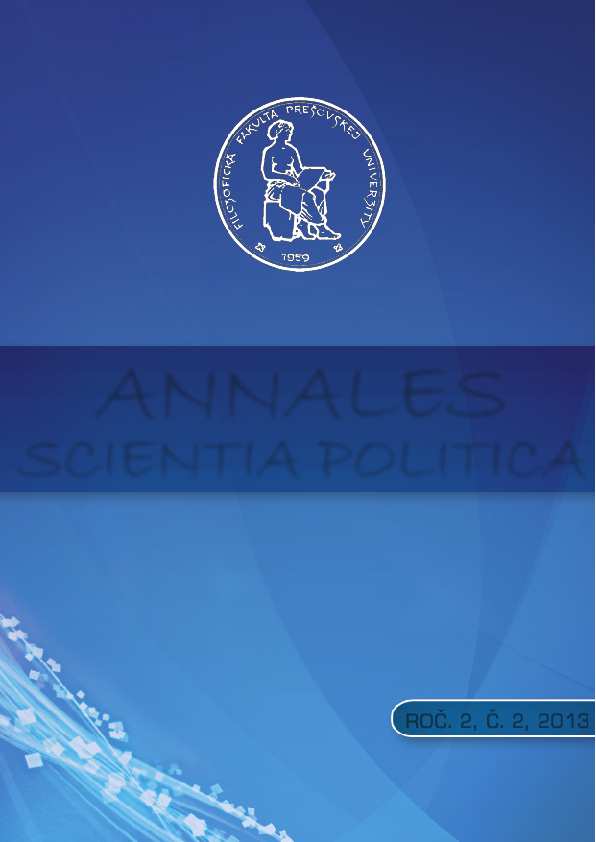
The concept of globalization is interpreted by various authors in terms of its importance or content. This article presents an overview of the theoretical background and results of an analysis of the influence of globalization trends on important macroeconomic indicators of selected countries. An examination of the level of globalization as a quantitative marker was enabled by the KOF Index of Globalization, which provides an indication of the economic, political and social globalization at global level. Research methods included time series analysis, trend analysis and nonparametric regression model (regression of panel data).
More...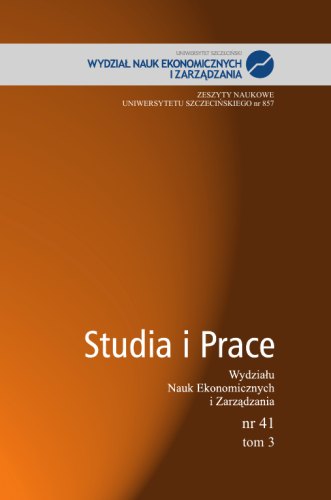
The aim of the article is to present the U.S. international investment position. Scale and changes in the U.S. international investment position were presented in the first part of the article and implications of its deterioration in the second part. The main concerns are: the emergence and intensification of global imbalances, growth of U.S. external debt, increasing vulnerability of the U.S. economy to sudden outflows of foreign capital, a deterioration of a net surplus of income account in the balance of payments and growing presence of foreign governments in american economy.
More...
Hungary’s economy has lost the past decade. Since the country acceded to the European Union, it has not been able to converge towards the EU average in per capita GDP, whereas the majority of the countries in the Central and East European region have come much closer to it. The general government and the current account balance improved markedly, but in every other field (consumption, investment, competitiveness, attraction of capital, etc.) Hungary’s performance has lagged behind the majority of the countries in the CEE region. This is due both to the former socialist-liberal and the present national-conservative governments. The irresponsible fiscal and unsuccessful reform policy of the former government contributed to the increase of the state debt. The latter government constrained democracy as well as the functioning of a market economy. Nationalisations, market reorganisations, and the deployment of a tax system as a means of punishment have undermined the rule of law and the security of property. As a result, a low growth potential and the widening of inequalities are economic characteristics of Hungary.
More...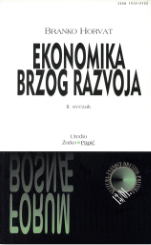
Pojam ekonomika proizišao je iz pojma oiconomia, grčke riječi koja znači upravljanje poslovima kućanstva. S pojavom nacionalnih država, ona je postala nacionalna ili politička ekonomija. Kao takva, bila je puki agregat pojedinačnih jedinica – kućanstava i poduzeća i stoga podložna zabludi poistovjećivanja. Ovaj je pristup još karakterističan za glavnu maticu ekonomske teorije.
More...
Economic democracy is an idea which different forces on the Left (political, trade unionist and intellectual) advocate for more than a century. Its essence is in the attitude that democracy cannot be just a political democracy for people cannot be politically equal if exploitation exists in the economic sphere. Therefore, economic democracy has to secure integral social democracy. The author analyses the views of the modern Left on economic democracy. He analyses attitude of the left-wing political parties as well as the left-wing authors. Economic democracy includes different models, from workers’ participation and workers’ control to workers’ self-management. Experiences of enterprises under different ownership regimes are discussed, with particular attention to workers’ cooperatives and enterprises under workers occupation. The author concludes that the Left (i.e. forces on the left to the social democracy) accepts different models of economic democracy, considering that it has to contribute to fulfilling different aims. Particular differences in understanding of economic democracy do exist, depending on ideological and political standpoints as well as on social conditions under which economic democracy has to be achieved.
More...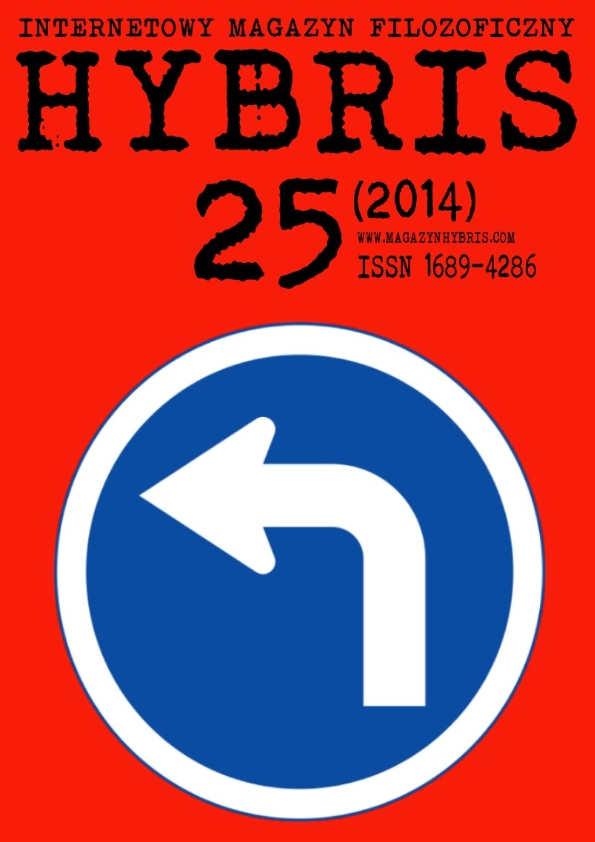
The article presents the importance of Marx’s manuscripts know today as Results of the Direct Production Process for the contemporary reading of his critique of political economy. The “unpublished sixth chapter” of Capital enables us to reconstruct Marx’s attempts to resolve two problems that accompanied him during his work on political economy, one being the relation between the process of capital’s circulation and the process of capital’s production, and the other being the unity of the labor process and the valorization process. The importance of Results goes even further, allowing a reinterpretation of Capital that focuses on the becoming of capital, the moment of labor’s subsumtion, application of science to the production process and the establishment of the wage relation. What the first volume of Capital presents as an accomplished project, “the sixth chapter” presents as a process in becoming.
More...